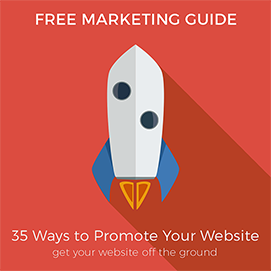Well, search engine optimisation in one brief article. Now there's a challenge.
Search engine optimisation is huge topic that the experts have been studying for years and are still learning about. It's an ever changing subject too. So don't expect to become in any way competent in search engine optimisation after reading this article. It really is just the absolute basics and some pointers for further study.
Search engine optimisation really falls into 3 main areas; getting your website understood by the search engines, getting your keywords in the right places, and improving your online reputation.
There are some other things which fall outside of those categories, but they are additional items that should be undertaken after satisfying these 3 areas first.
So, how do you get your website understood by the search engines? Firstly, write it in HTML.
Search engines use software to try to understand your website and work out what it's about. But they don't see it in the same way that you see it on your screen. They see the actual code of the programming language underneath. Search engines understand the HTML language. They do not understand the Javascript or Flash languages. It's OK to have a bit of Javascript and Flash on your page, as long as your entire page, or your entire site, is not written using these technologies.
Unfortunately, there are some web designers that will ONLY design websites using Flash. Avoid these companies like the plague. You will get zero results. There really is no argument to be made here, it's just the way it is. Flash websites fail. Period.
For those who are unsure whether your website is a Flash website, there are a couple of ways to check. If your website has loads of stuff moving around the page, it's probably Flash. If when you go to your website, the page doesn't just appear, instead it's dynamically built up and parts fly in from the sides and other bits just sort of assemble themselves, then that's Flash. Also, if you right click on the page, the right click menu will look different to other websites as well. So, go to the Google homepage and right click anywhere on the page. Then go to your website and right click it. If the menu is different, it's probably Flash. Especially if there are any "Flash" or "Adobe" items in the menu.
Or, of course, just ask your web developer.
If you have a Flash based website, you need to get it changed as soon as possible. Getting a Flash based website to have good rankings in the search engines is one of the hardest jobs for any search engine optimisation consultant. By redesigning your website using the HTML language, you could start to see a huge improvement in your website within weeks.
Give us a call on 0845 269 962 4 if you think you've got a Flash or Javascript based website and we'll see what can be salvaged.
OK, so you've got a HTML website, will my website be understood by the search engines?
Not necessarily.
HTML can be written in many ways, most of them badly. The W3C organisation dictates the correct way to write HTML and if your website does not follow this standard, it's written wrong and the search engines might not understand it completely, or even at all.
Use the W3C's free validation tool to check your website at http://validator.w3.org. Just type in your web address into that tool and it will tell you if it passes or fails. It only checks one page at a time, so check all of your main web pages individually.
Do it.
It doesn't matter if you think you've hired a professional to design your website. 94% of "professionally" designed websites fail this test and are suffering because of it. Just because you've paid a lot of money to an external web designer does not mean that it will pass this test. It's a sad thing to say about our own industry, but it's full of cowboys. So test your website!
If you pass, you've satisfied the first area. your website should be understood by the search engines.
Next you need to get your keywords into the correct places on your website.
First, choose the right keywords. Brainstorm the sorts of things people who might be looking for your sort of website might be typing into search engines. Then incorporate them into your website. Don't just try to stuff them all into one page. It's better to have a range of pages that cover different keywords, or groups of keywords. A single generic page will rank a lot lower for all of the keywords than a collection of individually targetted pages.
So where do you put them?
Ideally, in your web address. http://www.KeywordsAreUs.com is much better than http://www.GenericCompanyName.com. If your company name contains some of your keywords, brilliant! If not don't worry too much about it. Try to get your keywords into your page names though, such as http://www.GenericCompanyName.com/keywords.html.
Next, get them in the title of the page. That's what appears in the bar at the very top of the screen. But don't just list your keywords here, make sure it makes sense as the title of your page. "Keyword 1, Keyword 2, Keyword 3" is likely to be spotted by the search engines and penalised because of it.
There is also a description that doesn't appear on your page called the Meta Description. The search engines see this so write a brief description here that contains the main keywords. There's also the Meta Keywords field too, where you can just list all of your keywords.
After that, you need to get the keywords on you page. Get them in the pages' headings, and use the correct "headings" format rather than just making them bold and underlining them. Get them in the main paragraph text a few times, but again, don't just list them, make sure it makes sense and reads well. Search engines will penalise you for just listing your keywords anywhere on your site except the Meta Keywords field. Your site must read well to a human visitor.
Get them in your links too. "Click Here to find out about keywords" is terrible. Use "Find out about our keywords" instead. Get the keywords in the actual link text if at all possible.
Every image on your page should have a description too, and you should try to incorporate your keywords into these descriptions too, providing it makes sense.
This is just a brief overview of on-page SEO, this topic goes on forever, but just get these basics sorted for now, then improve it over time. Oh, and always re-check your W3C validation after every change.
The last area is improving your online reputation.
In short, reputation is defined by the number and quality of links coming into your site from other websites.
If you're looking for a website design company and a friend says, "I know OpenGlobal". That's a nice reference for us. But not a fantastic one. It's like a link on another website like this, OpenGlobal.
But if somebody says, "I know OpenGlobal and they're really good at web design and search engine optimisation", that's better. That's just like a link on another website like this, Web Design in Gloucester. The link has some keywords in it, not just our name.
But what's even better is if you ask a trusted web professional and he says "I know OpenGlobal and they're really good at web design and search engine optimisation". Then that's a brilliant reference for us. It's like having the same link as before, but on a website that is all about web design and search engine optimisation.
So that's what you need to do. Get links on other websites. Prefereably with your chosen keywords in the link text. And even better is getting links from specially selected websites that are in your area of business and that already rank well in the search engines. Don't just get links to your websites on random sites which offer free for all links to anywhere, you may get penalised for having disreputable sites linking to you.
Well, that's the theory. Getting those links is easier said than done. But you really need to work on getting those links. It's really powerful, and if done correctly, it can overcome failings in the other two areas previously mentioned.
I hope that's been of help to you. This is just the information that everybody needs to know. This isn't enough to mean you're an expert and you don't need to hire a professional to handle this. It's enough to help you work out if the professional you've chosen is really worth the money and it helps you to understand what they're doing (or should be doing).
These are the basic principles that go into designing all of our client websites.












